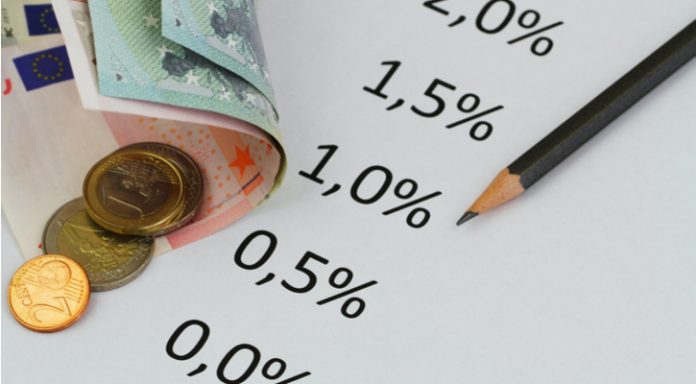Following the Bank of England’s March monetary policy meeting, the pound spiked higher versus the euro before falling back lower. The pound euro exchange rate hit a peak of €1.1528, its highest level since June last year, before slipping back it its pre-release level of €1.1469.
| What do these figures mean? |
|---|
|
When measuring the value of a pair of currencies, one set equals 1 unit and the other shows the current equivalent. As the market moves, the amount will vary from minute to minute. For example, it could be written: 1 GBP = 1.13990 EUR Here, £1 is equivalent to approximately €1.14. This specifically measures the pound’s worth against the euro. If the euro amount increases in this pairing, it’s positive for the pound. Or, if you were looking at it the other way around: 1 EUR = 0.87271 GBP In this example, €1 is equivalent to approximately £0.87. This measures the euro’s worth versus the British pound. If the sterling number gets larger, it’s good news for the euro. |
The Bank of England was slightly more hawkish than investors had been expecting. Whilst the central bank kept rates on hold at 0.5%, the vote split was more hawkish at 7 — 2. 7 members voted to keep rates on hold, with two, Ian McCafferty and Michael Saunders voting to raise rates immediately. This boosted investor hopes that a rate rise could be coming soon.
After the Brexit transition deal agreement, in addition to a few surprises to the upside in economic data, for example a solid increase in wages, the BoE appears to support a continuation of gradual rate rises. Some market participants saw today’s meeting as a step towards a rate rise in May.
| Why do raised interest rates boost a currency’s value? |
|---|
| Interest rates are key to understanding exchange rate movements. Those who have large sums of money to invest want the highest return on their investments. Higher interest rate environments tend to offer higher yields. So, if the interest rate or at least the interest rate expectation of a country is relatively higher compared to another, then it attracts more foreign capital investment. Large corporations and investors need local currency to invest. More local currency used then boosts the demand of that currency, pushing the value higher. |
This week has been a pivotal week for the pound, with significant amounts of information for traders to digest. It has been another solid week for the pound versus the euro, which is currently on track to have increased over 1% in value across the week, and 2.3% so far in March. There is no high impacting economic data due for release, so the pound may be lacking in direction.
Eurozone Economy Growth Slowing?
The euro was broadly lower in the previous session after a string of disappointing economic data releases for the bloc. Whilst last year saw the eurozone economy bound forward, this year has been a little more disappointing. Momentum in the eurozone economy is showing signs of slowing, which is weighing on the euro.
PMI data releases in the previous session showed that activity in the manufacturing sector and the service sector grow less than anticipated. The eurozone manufacturing pmi printed at 56.6, less than the 58.1 forecast and less than the 58.6 from February. Meanwhile the service sector dipped to 55 from 56.2 in the previous month also missing analysts expectations. Concerns over a slowdown in the economy sent the euro lower.
| Why does poor economic data drag on a country’s currency? |
|---|
| Slowing economic indicators point to a slowing economy. Weak economies have weaker currencies because institutions look to reduce investments in countries where growth prospects are low and then transfer money to countries with higher growth prospects. These institutions sell out of their investment and the local currency, thus increasing supply of the currency and pushing down the money’s worth. So, when a country or region has poor economic news, the value of the currency tends to fall. |
|
This article was initially published on TransferWise.com from the same author. The content at Currency Live is the sole opinion of the authors and in no way reflects the views of TransferWise Inc. |





